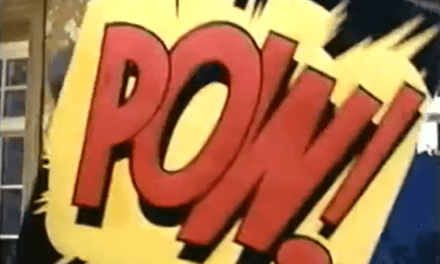This article first appeared in The Conversation, 16 October 2019
The new Sky Crime TV channel is entirely devoted to true crime documentaries. In a promotional blurb released on its website, Sky describes it as the “new home of premium crime”. It promises to provide viewers with a steady stream of “addictive, emotionally charged accounts of true crimes, many of which remain unsolved”.
In doing so, Sky Crime is feeding into the ongoing cultural obsession with true crime and “desktop detection”. Indeed, the tagline for the new channel, as launched in their promotional video on social media, is: “Question Everything.”
https://twitter.com/SkyCrimeUK/status/1178917379696480256
In the age of social media networks, the invitation to “question everything” – or at least to share your feelings and opinions about everything – is the new normal. In my book, Justice on Demand: True Crime in the Digital Streaming Era, I argue that true crime has come to mainstream prominence in the viewing-on-demand era because of how well it lends itself to Google search culture. To an extent, we are all “desktop detectives” now as we spend our days scrolling through Facebook, Twitter, Instagram and other social media.
This point was recently brought home with the “WAGagatha Christie” saga, in which Coleen Rooney was seen to use her razor-sharp internet sleuthing skills to solve the social media mystery of who had been selling her private Instagram stories to the tabloids.
True crime shows, such as the podcasts Serial and Up and Vanished or the Netflix long-form series Making a Murderer and The Disappearance of Madeleine McCann, are part of the same emotionally charged, participatory media culture that fuelled public interest in the Rooney Instagram sting operation. By asking us to help decide questions of criminal guilt and innocence or to solve mysteries, such shows position listeners and viewers as citizen-detectives and profess to involve us in the civic minded processes of social justice.
But does the fondness for immersing ourselves in true crime actually open up new possibilities for meaningful participation in processes of social justice? Does watching Sky’s four-part series The Case Against Adnan Syed really offer a “fresh look” at the 1999 murder of Baltimore student Hae Min Lee (as first recounted in the hit podcast Serial)? Or is it just more of the same?
Hooked on cliffhangers
The increased access to true crime certainly gives an illusion of greater involvement, as we are able to “like”, comment on and share various posts about criminal cases. According to Sky, one of the main selling points of their new channel is that it enables audiences to “immerse” themselves in a “true crime community”. In a convergence culture where television is increasingly connected to the internet, there are related apps, blogs, podcasts, and YouTube videos that can be easily accessed through your TV “after watching your favourite Sky crime show”.
But even though the interactive nature of digital-era true crime seems to create new potential for public engagement with crime, I believe that many recent true crime shows are exercises in viewer manipulation. People become immersed in long-form true crime series through binge-watching, and get an emotional high through hitting “play next episode”. The ultimate aim of many true crime docu-series is to capture viewer attention and to keep audiences hooked through the use of cliffhangers and other devices. For corporations such as Sky and Netflix, what is paramount is to keep viewers watching – and subscribing.
At a time when media companies are more concerned than ever with branding themselves as “woke” and alert to social concerns, true crime’s association with the socially conscious documentary form is also significant. True crime is packaged, not just as entertainment, but as a genre with the power to right social wrongs and correct miscarriages of justice. And the perceived social action of true crime is tied to market logics, with Sky Media noting the appeal of their new channel to advertisers who “can target and connect with audiences in the most sought-after genre of TV programming”.
Heroes and villains
It is important to consider the wider ethical issues surrounding our increased access to true crime as a “clickable”, 24/7 form of entertainment. In his 2015 book, So You’ve Been Publicly Shamed, journalist Jon Ronson notes that “every day a new person emerges as a magnificent hero or a sickening villain” on Twitter. True crime creates ever more fodder for social media dramas based around polarised emotional responses.
https://twitter.com/ZellnerLaw/status/1183875559861968897
For example, when Making a Murderer was released in 2015, it turned the two defence attorneys, Dean Strang and Jerry Buting, into internet heart throbs and its prosecuting attorney, Ken Kratz, into an internet villain.
On the release of the second season of Making a Murderer in 2018, Strang and Buting were no longer part of the picture and a new hero was found in the figure of defence attorney extraordinaire Kathleen Zellner. Despite the social media fandom around Making a Murderer, and the signing of online petitions regarding the apparent miscarriage of justice against Steven Avery and Brendan Dassey, it is notable that both men still remain in prison.
So, while Sky’s promise to “unleash the detective in everyone” is certainly seductive, we need to think critically about the nature of our emotional involvement with true crime in the streaming era. The decision of whether or not to take Sky up on its invitation to “go behind the yellow tape, piece together the evidence, interrogate the suspects and identify the perpetrators” is not one that should be taken lightly.
The author will be giving a talk called “Desktop Detection: True Crime in the Age of Social Media” at the Cambridge Festival of Ideas on October 26. The event is free and open to members of the general public and will include a Q & A.
Tanya Horeck is Reader in Film, Media & Culture at Anglia Ruskin University. She is a feminist media studies scholar. She writes on the representation of sexual violence in popular culture. Her current work focuses on how crime gets depicted on social media in digital networked culture. Other interests include documentary film, contemporary television, and sex, gender and violence in the digital age.






